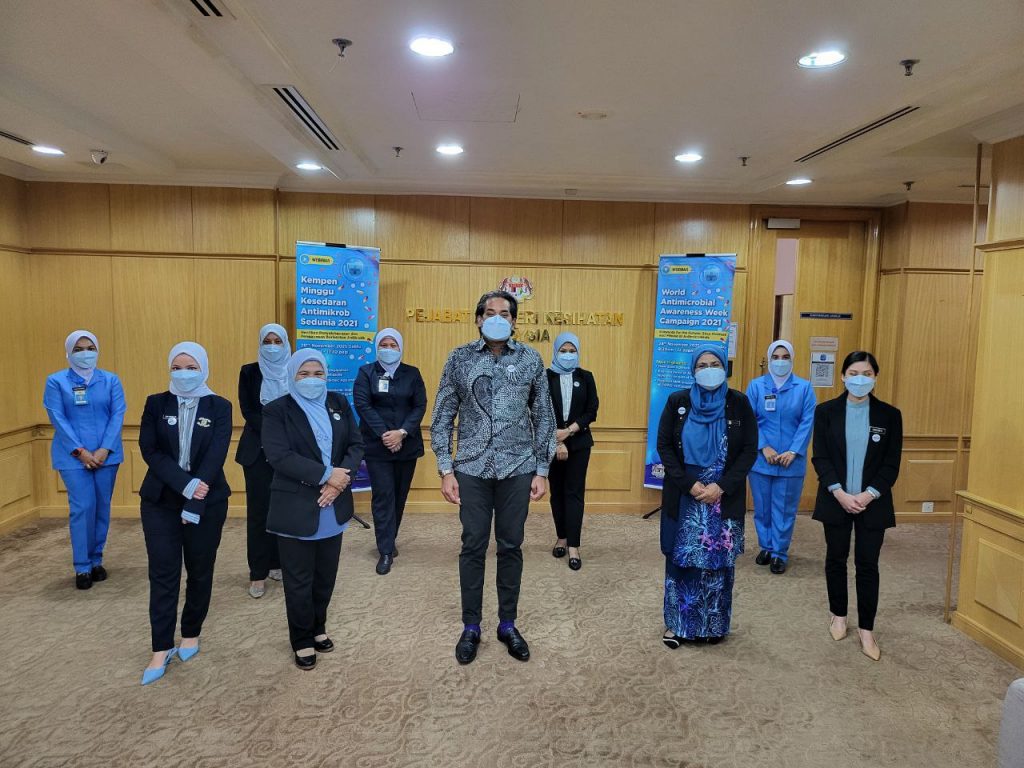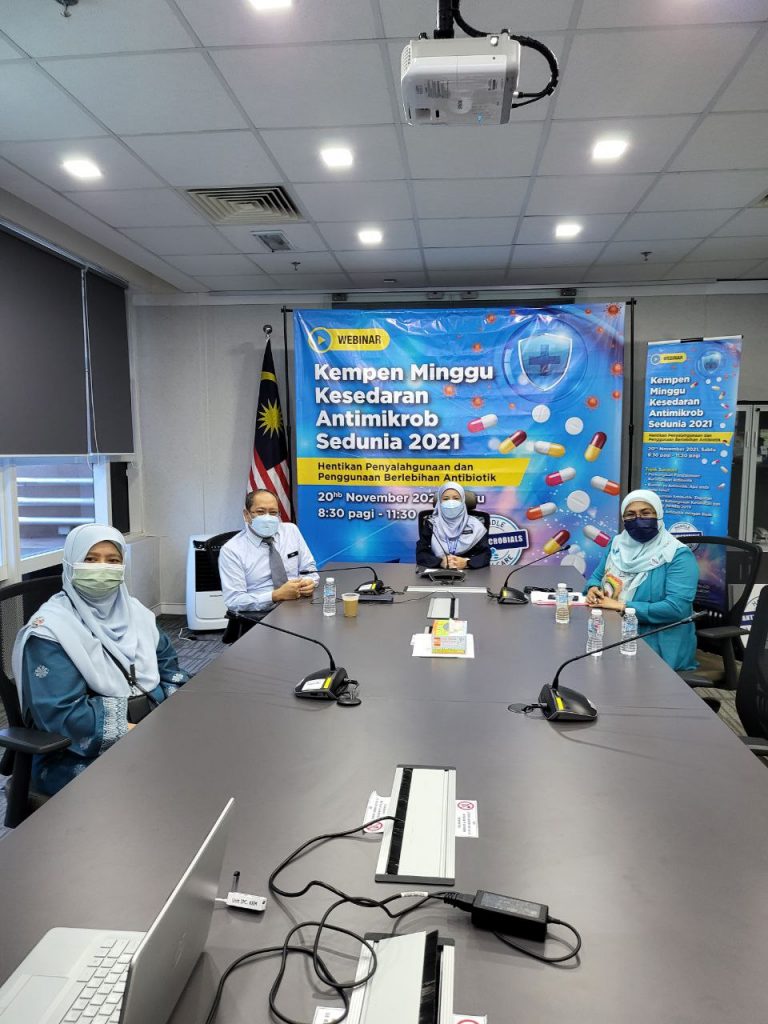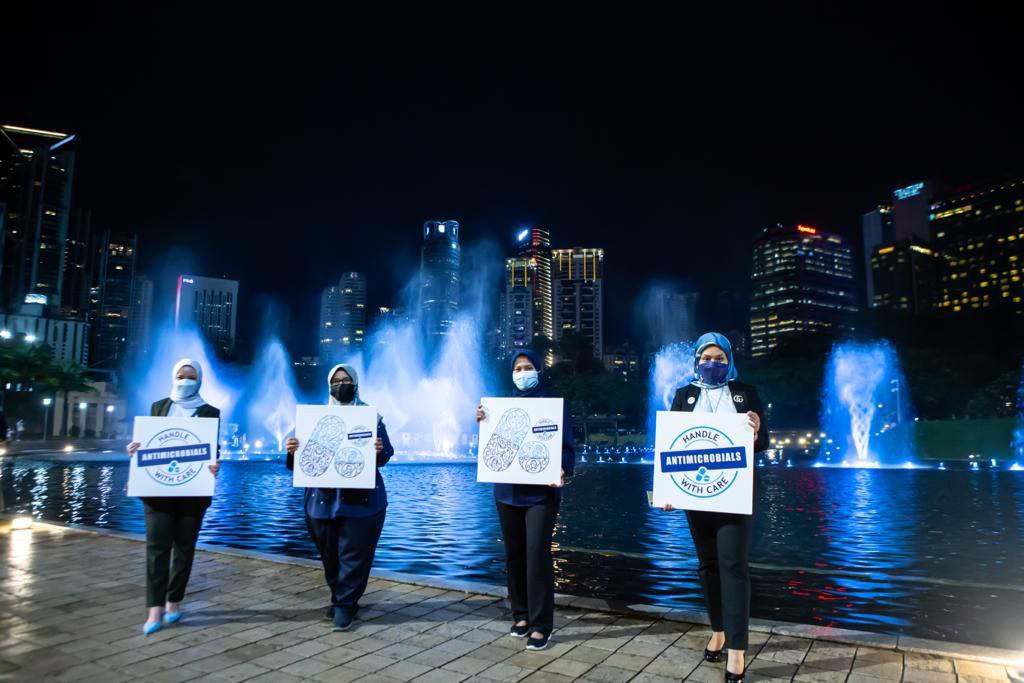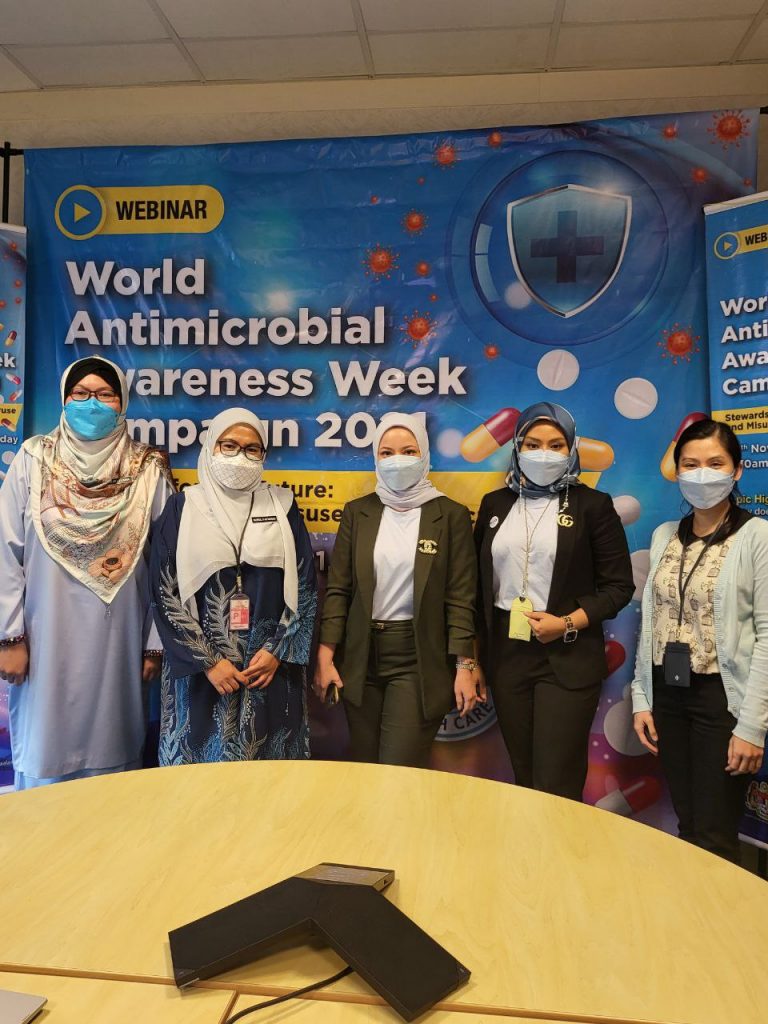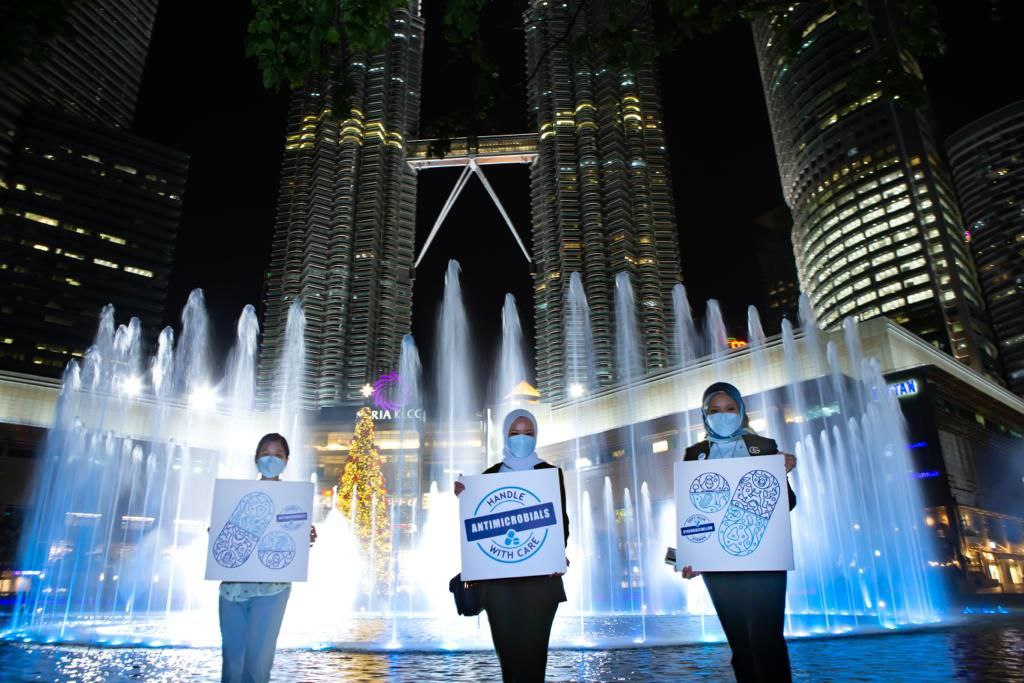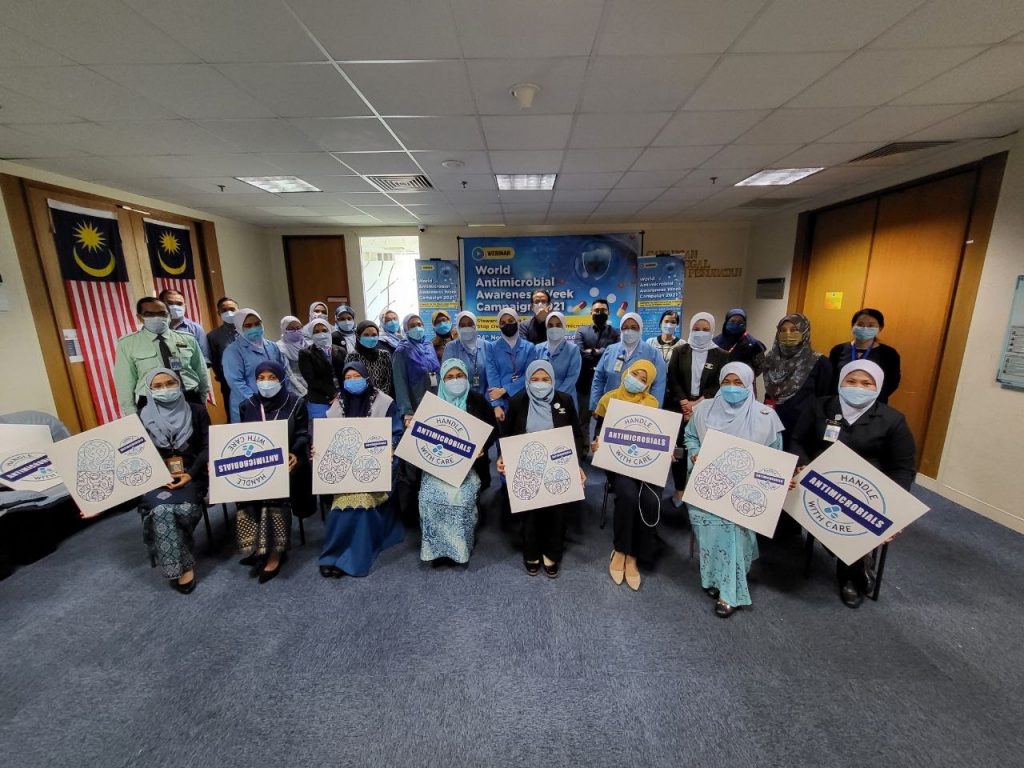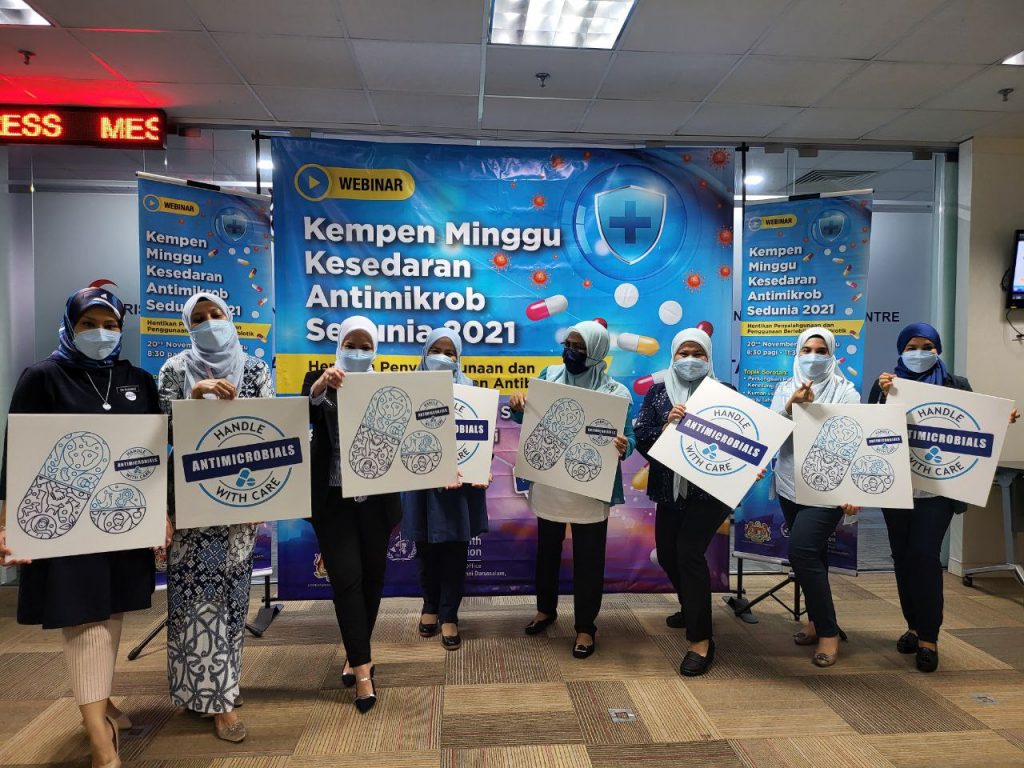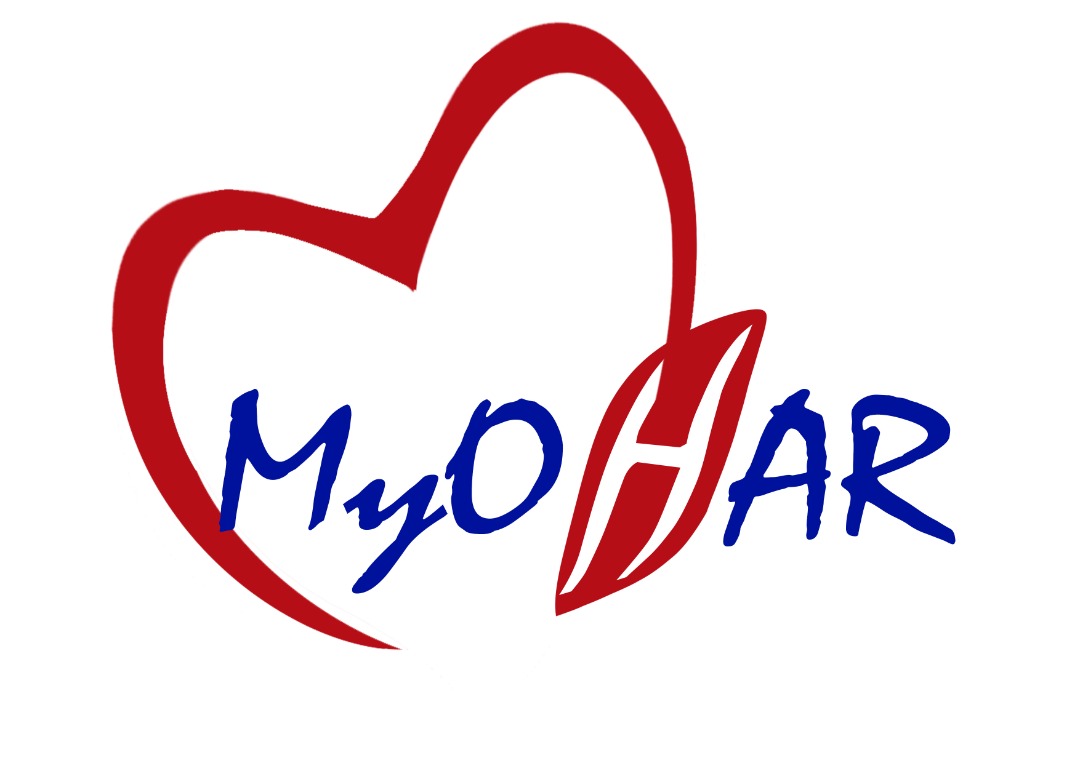20 & 24 November 2021, Zoom Webinar & Facebook Live
Organized by
Ministry of Health Malaysia
In collaboration with
World Health Organization (WHO)
1. Introductions
World Antimicrobial Awareness Week (WAAW) takes place each year from 18 to 24 November. Celebrated annually, the World Antimicrobial Awareness Week (WAAW) aims to increase awareness of global antimicrobial resistance and to encourage best practices among the general public, health workers and policy makers to avoid the further emergence and spread of drug-resistant infections.
Antimicrobial resistance (AMR) is a growing global problem and the current ongoing COVID-19 pandemic could further accelerate the occurrence of AMR. The World Health Organization (WHO) has declared AMR as one of the top 10 global public health threats. The COVID-19 pandemic, which strained health systems globally, may have exacerbated the spread of drug-resistant pathogens given increased prescribing of antimicrobial treatments and diversion of resources from both established and developing public health strategies, including those for AMR.
New resistance mechanisms are emerging and spreading globally, threatening our ability to treat common infectious diseases, resulting in prolonged illness, disability and death. AMR does not only involve human health but it extends across animal health, the food sector and environment. Therefore a collaborative and comprehensive action needs to be taken to reduce the spread of AMR.
2. Objectives
2.1 To make AMR a nationally recognized issue with engagement of all sectors – human, animal, plant and environment.
2.2 To raise awareness of the need to protect antimicrobial efficacy through prudent and responsible use.
2.3 To increase recognition of the roles that individuals, governments, civil society organizations and human, animal, environment and plant health as well as agriculture professionals must all play in tackling antimicrobial resistance.
2.4 To encourage behaviour change towards prudent use of antimicrobials across all relevant sectors and convey the message that simple actions can make a big difference.
3. Project Plan
3.1 Speakers will provide insight and knowledge to improve understanding among all related personnel on the significance and importance of antimicrobial awareness.
3.2 Dialogue sessions between the participants and the speakers.
3.3 Sharing of best experiences and practices on antimicrobial resistance during the awareness week.
4. Target Outcomes
4.1 Increased awareness among public and practitioners on rational use of antimicrobials.
5. Target Participants
5.1 Public
5.2 Professional Healthcare
5.3 Infectious Disease Specialist
5.4 Microbiologists
5.5 Pharmacists
5.6 Family Medicine Specialists
5.7 Private Medical Practitioners
Veterinary Practitioners
